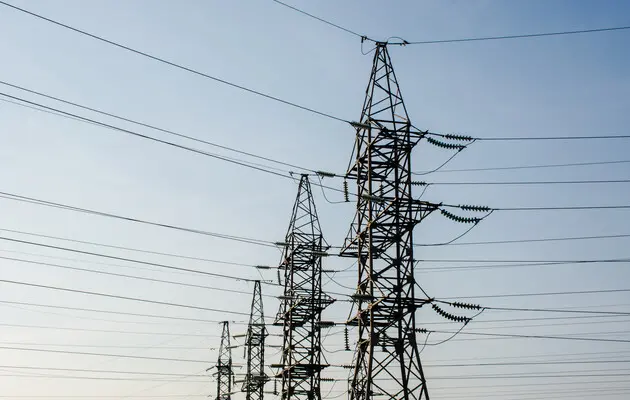Debunking the Myths in the Energy Sector
People love conspiracy theories, and in our society this love is especially strong. Conspiracies make it possible to easily explain the emergence of some problems and in this way provide simple solutions to complex problems – it is worth eliminating some evil genius and the problem will be solved.
Social networks have greatly simplified the dissemination of information, both true and misleading or manipulative. In the same way, social networks facilitate the spread of betrayals and conspiracies against the "ordinary Ukrainians".
The energy industry has always been a very good area for the spread of fakes and conspiracies. It was here that the "bad guys" were actively searched for and easily found. Since the full-scale invasion, the situation has only worsened. It is not surprising: massive power outages, tariff increases for the population in 2023 and 2024 hardly brought joy to anyone. And an additional factor that complicates everything is the informational and psychological operations of our common enemy. Russian bots under the guise of Ukrainians are trying to expose the conspiracies of the government and oligarchs.
But there is a problem with debunking myths – it is necessary to convey to the listener that there are simply no easy solutions to the current problems in energy. And as soon as someone tries to explain how things really are, they immediately run the risk of falling into the group of these bad guys who, in fact, arrange conspiracies and tariff genocide against ordinary Ukrainian citizens. I have no illusions that this text will be accepted by all readers. Rather, on the contrary, there are many "people's energy experts" who are ready to present a lot of strong evidence from the Internet, even with pictures, to destroy all arguments. It's no wonder that most of this evidence is manipulative, irrelevant, or generally fiction that has nothing to do with reality. But I'll try to explain everything to you anyway.
Myth 1. Power outages are unjustified?
In fact, there is no way without disconnections. And their main reason is Russian aggression. As of February 23, 2022, the installed capacity of Ukrainian power plants was almost 55 GW. We lost part of the power plants along with the occupation of the territories: Zaporizhzhia Nuclear Power Station, Kakhovka Hydroelectric Power Plant, Zaporizhzhia, Luhansk, Vugledarsk and other thermal power stations. And in addition, we lost a significant part of solar (SPP) and wind (WPP) power plants. As of February 24, 67% of the installed capacities of wind power plants were located in the Zaporizhzhia and Kherson regions, a large part of which is occupied. In total, we lost about 30% of (SPP) and 90% of (WPP).
And from September 2022, the Russian energy terror began: the enemy fired at power plants and high-voltage substations. As a result, last winter we entered with such a volume of capacity that, together with imports, was barely enough to cover demand. To some extent, we were able to get through last winter thanks to moderate weather, increased production by hydroelectric plants due to the abundance of water, and even air alarms, during which consumption drops somewhat (people stop working and go to shelters).
So, at the beginning of 2024, we barely had enough capacity. But from the end of March to the beginning of May, the enemy destroyed more than 8 GW of power with shelling. And this is almost half of the peak winter consumption! And here you don't need to be a great mathematician to understand what awaits us in winter. Of course, consumption is lower in the spring than in the winter months. But even with imports (up to 1.7 GW in individual hours), we cannot always cover the demand, so we have to resort to blackouts.
Myth 2. "Is there enough electricity"?
This wording has been repeatedly encountered in comments on social networks. This is the use of outdated information. Before the full-scale invasion, installed capacity was twice the peak demand. But because of the war, as described above, we have a catastrophic shortage of capacity – "not enough electricity." All too often, ordinary citizens use outdated information that was relevant before a full-scale invasion, but not today.
Myth 3. "But we export electricity to Europe, even though we don't have enough ourselves"
There are two aspects to this myth. The first: there may be a deficit in certain hours, and in and at others there may be a surplus of electricity. Well, then in the hours of surplus, it makes sense to export – it is money for the national economy, for the timely payment of taxes and salaries. If it is not even exported, then in any case it is impossible to save it, because we do not have enough storage capacity.
Another thing is when, for example, there is a total shortage of electricity. Then there are no commercial exports, but there are systemic flows. We have had no exports in recent weeks, but naturally there are flows. Energy systems of European countries are like interconnected vessels. Only the volume that left the country must return. And it doesn't matter if, for example, it went from Ukraine to Hungary, and returned from Romania and Poland. The balance of transfers minus trade and emergency aid is zero (here, for example, there is a good explanation with pictures and links). At one time, even Yulia Tymoshenko believed in this lie, what can we say about the average citizen.
Myth 4. "Electricity in Ukraine is the most expensive in Europe"
Such reports are outright lies because the tariff for the population in Ukraine was the lowest among European countries. It is easy to verify this by finding the appropriate section on the website of the statistical office of the European Union.
Of course, in such discussions, the argument about the size of the tariff relative to salaries is used. But there is a counterargument to this as well: in Moldova, which was poorer than our country before the Russian invasion of Ukraine, the tariff is higher. The fact is that Moldova, which is not rich, is not able to subsidize a low tariff for everyone, and that is why it is relatively high. Instead, the country has an adequate system of targeted subsidies: if you cannot pay the full price, you receive compensation. It happened that one third of the population received targeted subsidies. But this is already a topic about the problem of an adequate system of subsidies in Ukraine, which we still have to develop.
Myth 5. "Why should we pay this full price?"
First, why don't such discussions arise regarding the price of the Internet or mobile services? And secondly, someone has to pay for it. Now, as of the end of May, the difference between the current tariff and real costs is covered by two state companies, State Enterprise National Nuclear Energy Generating Company (SE NNEGC "Energoatom") and PJSC Ukrhydroenergo, and the amount of such compensation for 2024 is estimated at UAH 150 billion. Because of the war, these companies do not have the necessary funds. The fact is that "Energoatom" lost the Zaporizhzhia Nuclear Power Station, and "Ukrhydroenergo" lost the Kakhovka Hydroelectric Power Plant, and subsequently two large plants were significantly damaged in the spring of 2024. Companies simply do not have this money, and accordingly, do not pay the full amount of money. In fact, we all receive electricity in debt, because it is not paid in full. And there are no funds in the budget either. According to the Minister of Finance of Ukraine, the hole in the budget for 2025 may amount to 12-15 billion dollars.
Myth 6. "There is a solution – to nationalize everything"
More and more often in the comments on social networks, there are opinions that it is necessary to nationalize energy assets, and this will supposedly solve all problems.
First: the lion's share of energy assets in Ukraine is in state or communal ownership. This proportion was high before the war and increased after the invasion through a series of nationalizations. Almost the entire gas market is Naftogaz of Ukraine. The majority of electricity production was carried out by the state-owned Energoatom, Ukrhydroenergo, Centernergo, and communal thermal power stations.
Um… if government ownership works wonders, why hasn't the miracle happened yet?
Second: textbooks on macroeconomics say that the government is often an inefficient owner of assets. Another thing is if adequate corporate governance is implemented. But this is not our story, well, that's how things have turned out at this stage. At least for now.
However, you don't need to read textbooks to come to the same conclusion if you know even a little about the experience of Ukrainian state-owned energy companies. For example, in a few years, the management at "Centrenergo" changed seven times. But this did not make the company profitable, and did not get rid of corruption scandals, unpaid debts, did not solve eternal problems with readiness for challenges for the country's energy system in winter. And now all the assets of "Centrenergo" have been destroyed. There are many questions about many other state energy companies as well.
***
Today it is worth remembering that the enemy is trying to spread lies about the work of our energy industry. In particular, in order to create mistrust and discord. Therefore, we should not spread myths and fakes that help our enemy who is trying to destroy us.
Read this article in Ukrainian and russian.
Please select it with the mouse and press Ctrl+Enter or Submit a bug












 Login with Google
Login with Google